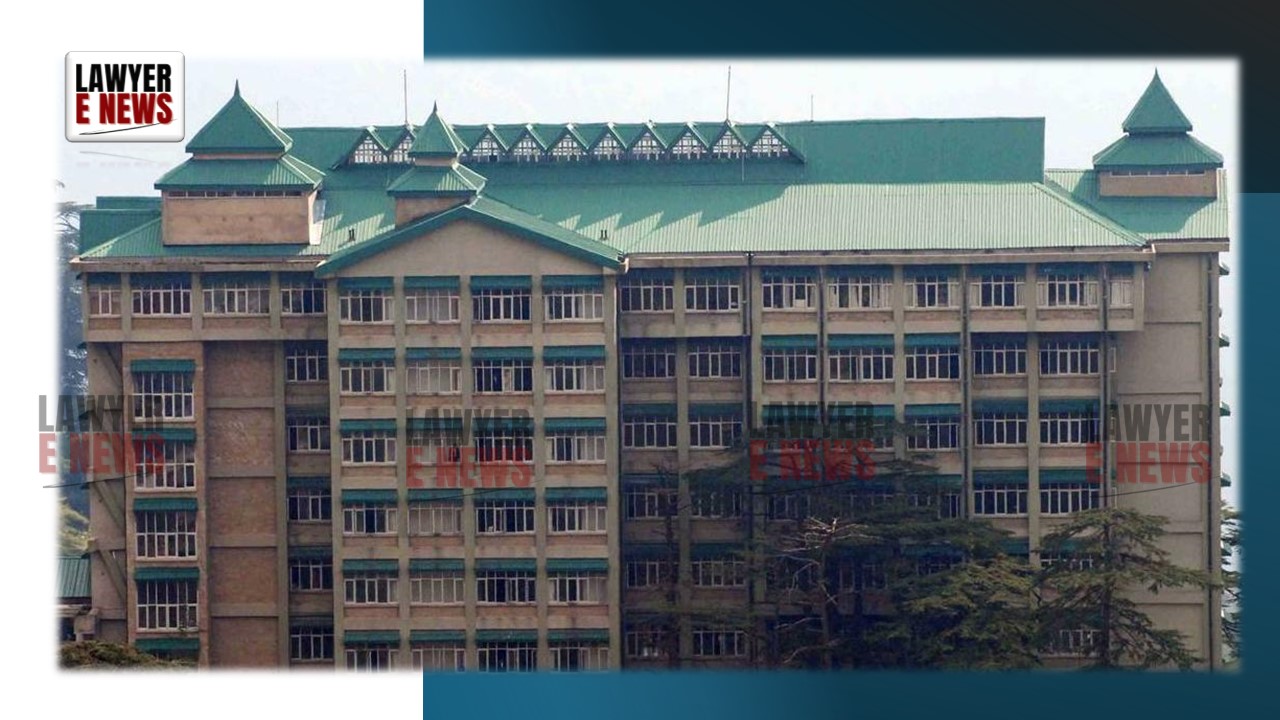-
by Admin
15 February 2026 5:35 AM



In a judgment delivered on November 18, 2024, the Himachal Pradesh High Court dismissed an appeal filed by the General Manager, Northern Railway, challenging the enhanced compensation awarded by the Reference Court under Section 18 of the Land Acquisition Act, 1894. The dispute arose over land acquired for the construction of the Nangal–Talwara Railway Line in village Raisary Upperli, District Una, Himachal Pradesh.
The appeal, Regular First Appeal No. 162 of 2008, sought to set aside the Reference Court’s award dated September 29, 2007, which had increased the compensation for the acquired land to ₹25,000 per kanal. The Land Acquisition Collector had earlier categorized the land and awarded compensation based on its classification, with rates ranging from ₹787.07 to ₹15,872.75 per kanal. Dissatisfied, the claimants had approached the Reference Court, which uniformly enhanced the compensation across all categories of land.
Uniform Market Value Applied Due to Single Public Purpose
The High Court, presided over by Justice Sushil Kukreja, held that the Reference Court’s decision to uniformly enhance the compensation was justified. The land was acquired for a single public purpose—the construction of the railway line—and thus, the classification of land had no relevance. The Court cited the Supreme Court’s ruling in Nelson Fernandes v. Special Land Acquisition Officer, (2007) 9 SCC 447, which held that no deductions for development charges are applicable when land is acquired for public purposes like railway lines, as there is no question of further development.
Justice Kukreja noted that the acquired land was uniformly used for the construction of the railway line, and applying different compensation rates based on land classification would be unjust. The Court emphasized that the Reference Court had rightly determined the market value of the acquired land, taking into account its proximity to schools, factories, and residential areas.
The High Court relied on evidence presented by the claimants to uphold the enhanced compensation. Witnesses, including PW-1 (a registration clerk), proved sale deeds from the area, which established that the market value of similar land in the vicinity justified the enhanced rate of ₹25,000 per kanal. Other witnesses, including PW-2, PW-3, and PW-4, testified to the strategic location of the acquired land near schools and residential areas, further supporting the Reference Court’s findings.
The High Court also referred to a co-ordinate bench judgment in General Manager, Northern Railway v. Rajneesh Kumar & Others (RFA No. 378 of 2012), where similar facts and circumstances were involved. In that case, the Court had upheld the enhancement of compensation for land acquired for the same railway line. Justice Kukreja emphasized the need for consistency in judicial decisions, noting that the earlier judgment provided persuasive authority for dismissing the present appeal.
The High Court concluded that the Reference Court’s award was fair, reasonable, and reflective of the true market value of the acquired land. The appeal filed by the Northern Railway was dismissed as devoid of merit. The Court observed that the enhanced compensation was appropriate, given the evidence of market rates and the uniform use of the land for public purposes.
This judgment underscores the principle that compensation for land acquired for public purposes must reflect its fair market value, without undue reliance on land classifications when the land is uniformly utilized. By upholding the enhanced compensation, the Himachal Pradesh High Court has reaffirmed the rights of landowners to just and equitable recompense under the Land Acquisition Act.
Date of decision: 18 November 2024
